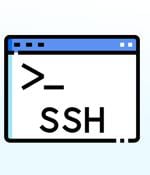Security News

OpenSSH has released security updates addressing two vulnerabilities, a machine-in-the-middle (MitM) and a denial of service flaw, with one of the flaws introduced over a decade ago. [...]

Two security vulnerabilities have been discovered in the OpenSSH secure networking utility suite that, if successfully exploited, could result in an active machine-in-the-middle (MitM) and a...

Exploit code now available for MitM and DoS attacks Researchers can disclose two brand-new vulnerabilities in OpenSSH now that patches have been released.…

The maintainers of the FreeBSD Project have released security updates to address a high-severity flaw in OpenSSH that attackers could potentially exploit to execute arbitrary code remotely with elevated privileges. The vulnerability, tracked as CVE-2024-7589, carries a CVSS score of 7.4 out of a maximum of 10.0, indicating high severity.

It affects the sshd daemon versions 8.7p1 and 8.8p1, which were used in Fedora 36 and 37 as well as Red Hat Enterprise Linux 9 - and of course the various RHELatives as well. It's not long since the "RegreSSHion" OpenSSH bug, which The Register covered earlier this month and which is more formally known as CVE-2024-6387.

Select versions of the OpenSSH secure networking suite are susceptible to a new vulnerability that can trigger remote code execution. The vulnerability, tracked as CVE-2024-6409, is distinct from CVE-2024-6387 and relates to a case of code execution in the privsep child process due to a race condition in signal handling.

Your profile can be used to present content that appears more relevant based on your possible interests, such as by adapting the order in which content is shown to you, so that it is even easier for you to find content that matches your interests. Content presented to you on this service can be based on your content personalisation profiles, which can reflect your activity on this or other services, possible interests and personal aspects.

A new OpenSSH unauthenticated remote code execution vulnerability dubbed "RegreSSHion" gives root privileges on glibc-based Linux systems. Exploitation of regreSSHion can have severe consequences for the targeted servers, potentially leading to complete system takeover.

OpenSSH maintainers have released security updates to contain a critical security flaw that could result in unauthenticated remote code execution with root privileges in glibc-based Linux systems....

This manipulation lets attackers remove or modify messages exchanged through the communication channel, which leads to downgrading the public key algorithms used for user authentication or disabling defenses against keystroke timing attacks in OpenSSH 9.5. "The Terrapin attack exploits weaknesses in the SSH transport layer protocol in combination with newer cryptographic algorithms and encryption modes introduced by OpenSSH over 10 years ago."